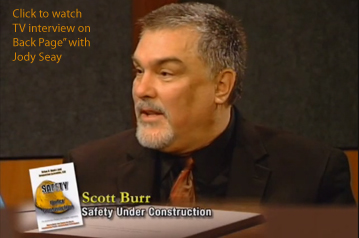Hi Matt. Thank you again for bringing up another comment. I can appreciate your skepticism and I really love that it is so precise. That is exactly what is needed when solving problems with innovation – precisely bringing up issues that seem to be unaddressed or wrong. Let’s start with Matt’s comment first and then I will answer.
Matt commented on New Book–Safety Under Construction.in response to riskex:
|
I think that in this case an analogy will be most useful. There is already a tool that begins to address spelling mistakes in WordPress and most word processing software. The tool began as a spell checker decades ago, but its usefulness has evolved to the point it can recognize grammar issues and more. It underlines words so you can see that the checker thinks you made a mistake and in some cases of very common issues (like spelling “the” as “hte”) it just automatically fixes the problem. You can run spell check before sending an email. You can choose to set your default so it automatically checks before sending an email, etc.
If we had a systematic view of “accidents” like a word processor has a systematic view of spelling errors, then we could put in an accident checker at every project site. It could fix some things automatically, it could inform safety professionals of potential problems (like an exposed cord someone could trip over or icy ladder steps or …). Technology to do this is out there in the world. University students are developing smart sensors and there is simulation software and processes, tools, and technologies as described in the book. Everything a spell checker can do, can also be done in this industry. Mistakes can be caught and fixed.
But, and here is one of the most difficult issues to solve, you still made a mistake – even though you knew better. Or you didn’t pay attention when the checker prompted you and you performed the work and it was delivered with a flaw. That flaw was caused by a person and the oversight system didn’t work perfectly. That is your point, correct?
Well, that is not so hard of a problem to solve conceptually. We just need a better checker. One that is more intelligent than Microsoft Word has developed. One that has a better expert system to draw upon. One that knows and automatically addresses more commonly made mistakes. One that has a more obnoxious clarion call when you make a mistake. One that makes it impossible for you to proceed without fixing it. None of these things are even inventive solutions; they just need someone to perform the work and present it to the world. These are all just incremental improvements. But we would not be at this stage and talking about how to make it even better if software developers had not already started with the concepts and worked to make them viable decades ago.
That is what we need to do now in the field of construction safety. We need to begin to create these “safety checkers” in our industry. And let me be clear. Safety checkers are not magic bullets that will solve all problems. But it is a good start to solving this kind of construction safety problems.
There is so much money to be made by doing the things we suggest in the book. But instead of patenting the ideas and moving forward with building new companies and products, we put this out into the world for everyone to begin to work on. That way it will get finished sooner and more lives will be saved.
There are ideas for new types of ladders in the big book. There are social solutions and technology solutions and software solutions and wireless solutions, new tools, new methodologies, and new communications strategies. There are … well, hundreds of money making ideas for ANYONE who wants to take them and run. If we wanted this to be “purely a money making exercise” then I promise you we would not have given away the information on how to make millions (maybe billions) for the price of a book. What we want, Matt, is to save lives. That has to begin before it can be improved. Maybe the first products will only do part of the job; but they will save some lives. Those projects and their financial success will simulate other people to make improvements and others to build new and better products because now people are thinking of the problems in new ways.
We are only three people. Hundreds need to participate in the vision or develop a better future and begin to work towards it with practical real solutions. We are offering this as thought leaders out into the world to light a fire and create a call to action. We hope you and other deep thinking people will refine on the ideas and save lives at exponentially greater numbers. We don’t have all of the answers, but we could if we just take the next step and then the next and if we think about the “impossible to solve problems” in new ways and with greater responsibility. We have gone far enough to prove that it is now possible. It will take a dedicated commitment from many, many people to refine and bring it to life.
I hope I answered your question in a not too theoretical manner. If you have more comments, I sincerely welcome them, Matt. You bring up good points and are helping to shape the conversations in important ways. Thank you. I absolutely mean that!!!

